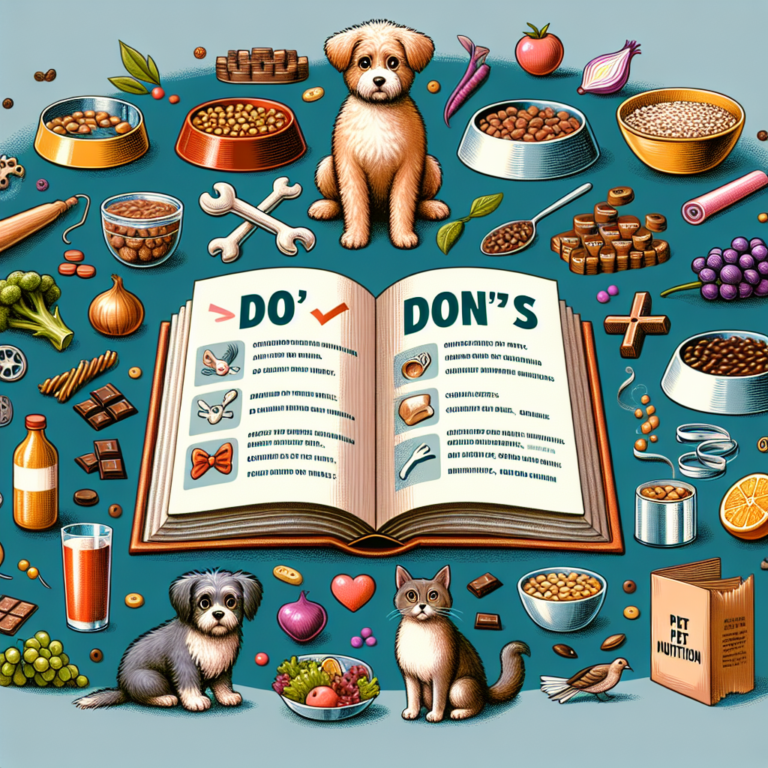As pet owners, one of our most important responsibilities is ensuring that our furry friends are well-fed and properly nourished. A balanced and nutritious diet is crucial for keeping our pets healthy, happy, and full of energy. However, with so many options available, it can be overwhelming to know what to feed our pets and what to avoid. To help you navigate through the world of pet nutrition, here are some essential do’s and don’ts to keep in mind.
Do’s:
1. Consult with a veterinarian: Before making any changes to your pet’s diet, it’s important to consult with a veterinarian. They can provide personalized recommendations based on your pet’s age, breed, size, and health condition. They can also recommend specific diets if your pet has any medical issues or allergies.
2. Choose high-quality pet food: Look for pet food made with natural, whole ingredients and free from artificial additives or fillers. Quality pet food will provide all the essential nutrients your pet needs to thrive.
3. Provide a balanced diet: Your pet’s diet should include a mix of proteins, carbohydrates, fats, vitamins, and minerals. Feeding your pet a variety of foods will ensure they receive all the necessary nutrients for optimal health.
4. Monitor portion sizes: Overfeeding can lead to obesity and other health issues. Be mindful of portion sizes and follow the feeding guidelines provided on the pet food packaging.
5. Offer fresh water: Make sure your pet always has access to fresh, clean water. Proper hydration is essential for your pet’s overall health and well-being.
Don’ts:
1. Don’t feed table scraps: While it may be tempting to share your meal with your pet, many human foods can be harmful to pets. Onions, garlic, grapes, chocolate, and caffeine are just a few examples of foods that can be toxic to pets.
2. Avoid giving too many treats: While treats can be a great way to reward your pet, excessive treats can contribute to weight gain and nutritional imbalances. Limit treats to ensure your pet’s overall diet remains balanced.
3. Don’t switch foods abruptly: Gradually transition your pet to a new food over the course of a week to prevent digestive upset. Abruptly switching foods can lead to gastrointestinal issues such as vomiting and diarrhea.
4. Don’t rely on homemade diets: While homemade diets may seem like a healthy option, it can be challenging to ensure your pet is receiving all the necessary nutrients. Consult with a veterinarian before transitioning to a homemade diet.
5. Avoid free-feeding: Leaving food out all day can lead to overeating and weight gain. Establish a regular feeding schedule and stick to it to help maintain your pet’s ideal weight.
By following these do’s and don’ts of pet nutrition, you can help ensure your furry friend stays healthy, happy, and thriving. Remember that every pet is unique, so it’s essential to work with your veterinarian to develop a nutrition plan that meets your pet’s specific needs. With proper nutrition, your pet can enjoy a long and healthy life by your side.
